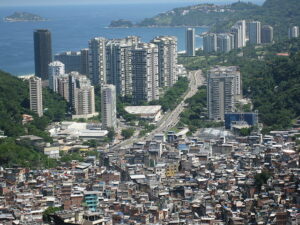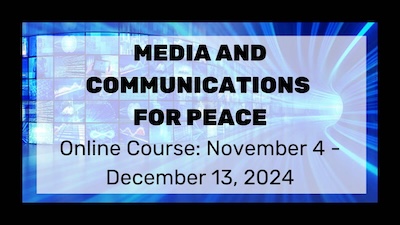(This is section 47 of the World Beyond War white paper A Global Security System: An Alternative to War. Continue to preceding | following section.)

War, economic injustice and failure of sustainability are tied together in many ways, not the least of which is high youth unemployment in volatile regions such as the Middle East, where it creates a seed bed for growing extremists. And the global, oil-based economy is an obvious cause of militarized conflict and imperial ambitions to project power. The imbalance between the affluent northern economies and the poverty of the global south can be righted by a global Marshall Plan that takes into account the need to conserve ecosystems upon which economies rest and by democratizing the international economic institutions including the World Trade Organization, the International Monetary Fund and the International Bank for Reconstruction and Development.
“There is no polite way to say that business is destroying the world.”
Paul Hawken (Environmentalist, Author)
Political economist Lloyd Dumas states, “a militarized economy distorts and ultimately weakens society”. He outlines the basic principles of a peacekeeping economy.note45 These are:
Establish balanced relationships – everyone gains benefit at least equal to their contribution and there is little incentive to disrupt the relationship. Example: The European Union – they debate, there are conflicts, but there are no threats of war.
Emphasize development – Most of the wars since WWII have been fought in developing countries. Poverty and missing opportunities are breeding grounds for violence. Development is an effective counter-terrorism strategy, as it weakens the support network for terrorist groups. Example: Recruitment of young, uneducated males in urban areas into terror organizations.note46
Minimize ecological stress – The competition for depletable resources (“stress-generating resources”) – most notably oil; in the future water – generates dangerous conflicts between nations and groups within nations.
It is proven that war is more likely to happen when there is oil.note47 Using natural resources more efficiently, developing and using non-polluting technologies and procedures and a large shift toward qualitative rather than quantitative economic growth can reduce ecological stress.
(Continue to preceding | following section.)
We want to hear from you! (Please share comments below)
How has this led you to think differently about alternatives to war?
What would you add, or change, or question about this?
What can you do to help more people understand about these alternatives to war?
How can you take action to make this alternative to war a reality?
Please share this material widely!
Related posts
See other posts related to “Managing International and Civil Conflicts”
See full table of contents for A Global Security System: An Alternative to War
Notes:
45. http://www.iccnow.org (return to main article)
46. Dumas, Lloyd J. 2011. The Peacekeeping Economy: Using Economic Relationships to Build a More Peaceful, Prosperous, and Secure World. (return to main article)
47. Supported by the following study: Mousseau, Michael. “Urban Poverty and Support for Islamist Terror Survey Results of Muslims in Fourteen Countries.” Journal of Peace Research 48, no. 1 (January 1, 2011): 35–47. This assertion should not be confused with an overly simplistic interpretation of the multiple root causes of terrorism. (return to main article)








